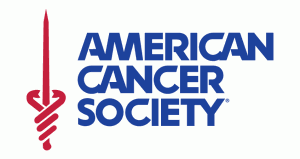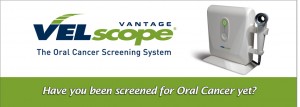The importance of early oral cancer detection through regular dental check ups cannot be stressed enough in protecting yourself from oral cancer. The Am erican Cancer Society estimates that there will be more than 40,000 new cases of oral cancer in the United States in 2012. More than 25% of the Americans who get oral cancer will die of the disease.
erican Cancer Society estimates that there will be more than 40,000 new cases of oral cancer in the United States in 2012. More than 25% of the Americans who get oral cancer will die of the disease.
Although once thought of as a disease of older generations, oral cancer is becoming more common in younger people due to the spread of the human papillomavirus. A new study published in January of 2012 in the Journal of the American Medical Association shows an estimated 7% of American teens and adults carry the human papillomavirus in their mouths. This may help health experts finally understand why rates of oral cancer have been climbing for nearly 25 years. The study stated that oral sex practices play a key role in transmission. Another study published in October 2012 in the Journal of Clinical Oncology traced more than 70% of new cases of oral cancers to HPV infection, putting it ahead of tobacco use as the leading cause of such cancers.
Other risk factors for the development of oral cancer include:
- Smoking. Cigarette, cigar, or pipe smokers are six times more likely than nonsmokers to develop oral cancers.
- Smokeless tobacco users. Users of dip, snuff, or chewing tobacco products are 50 times more likely to develop cancers of the cheek, gums, and lining of the lips.
- Excessive consumption of alcohol. Oral cancers are about six times more common in drinkers than in nondrinkers.
- Family history of cancer.
- Excessive sun exposure, especially at a young age.
It is important to note that over 25% of all oral cancers occur in people who do not smoke and who only drink alcohol occasionally.
Symptoms may include:
- a sore, lump, or ulcer in the mouth
- red or white patches
- difficulty chewing, swallowing, or talking
- swollen lymph nodes
- weight loss
The good news is that oral cancer can easily be diagnosed with an annual oral cancer exam, and effectively treated when caught in its earliest stages.When oral cancer is diagnosed in its earliest stages, treatment is generally very effective. Any noticeable abnormalities in the tongue, gums, mouth or surrounding area should be evaluated by a health professional as quickly as possible.
During your dental exam, your Dental Health dentist or hygienist will look for any signs of oral cancer. A thorough oral, head, and neck cancer examination can easily be completed in a few minutes. He or she will feel the area under your jaw, the sides of your neck, and the insides of your lips and cheeks, as  well as examine your tongue and the roof and floor of your mouth.
well as examine your tongue and the roof and floor of your mouth.
We also use a device to detect oral cancer called a VELscope. The VELscope is non-invasive and uses a bright blue light to emphasize any changes in the mouth that we could not normally see.